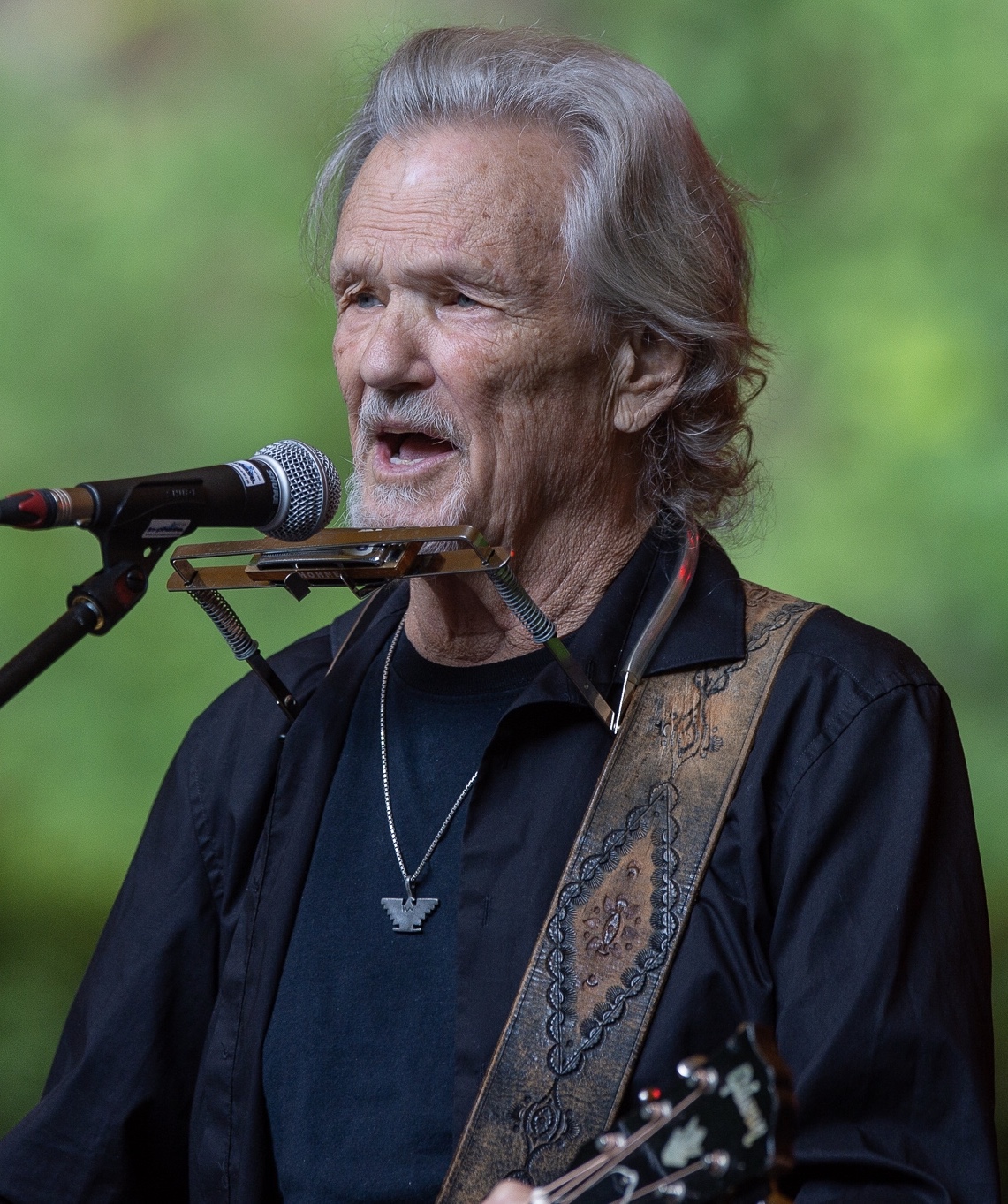
Kris Kristofferson, a towering figure whose influence permeated both country music and Hollywood, has died at the age of 88. The man hailed as a Rhodes scholar with a deft writing style and rough charisma, who ascended to become both a country music superstar and an A-list Hollywood actor, passed away peacefully at his home on Maui, Hawaii, on Saturday, September 28, surrounded by his family. His passing marks the end of an extraordinary life that defied conventional categorization.
Born Kristoffer Kristofferson in Brownsville, Texas, he was a true renegade, blending a rigorous intellectual foundation with the raw, heartfelt expressiveness of a poet and musician. His unique journey from a potential academic or military career to the vibrant, sometimes gritty, world of songwriting and acting made him a singular voice in American culture. He carved out a niche where intricate folk music lyrics about loneliness and tender romance could find a home within popular country music, forever altering its landscape.
His impact, deeply felt across multiple artistic disciplines, leaves an indelible mark. As we reflect on his remarkable career, it becomes clear that Kristofferson wasn’t merely a talent; he was a force of nature, a storyteller whose words and presence resonated with millions. His life was a testament to following one’s authentic path, even when it meant challenging expectations and forging entirely new ones.
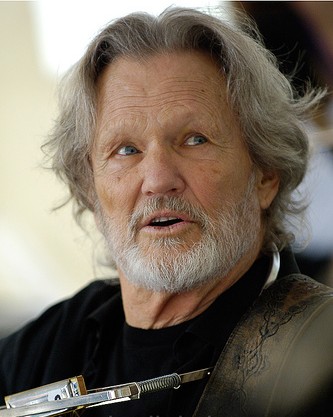
1. **The Rhodes Scholar and Military Path Not Taken**:Before he was known as the gravelly-voiced country icon or the rugged film star, Kris Kristofferson was a brilliant academic. He enrolled in Pomona College in 1954, distinguishing himself as a star athlete in rugby, football, and track and field. Graduating summa cum laude in 1958 with a Bachelor of Arts in Literature, his intellectual prowess was undeniable, culminating in a prestigious Rhodes Scholarship to Oxford University, where he earned a master’s degree in English Literature from Merton College in 1960. He even aspired to be a novelist during this period.
Kristofferson’s family, especially his U.S. Army Air Corps officer father, held strong expectations for his future, which included military service. He honored these expectations, enlisting in the Army in the 1960s, where he rose to the rank of captain and became a Ranger. During his service, he flew helicopters, a skill that would later contribute to a famous, albeit exaggerated, Nashville legend. He was also a Golden Gloves boxer in college, further illustrating his diverse talents and physical capabilities.
However, a profound turning point arrived when Kristofferson was offered an appointment to teach English Literature at the U.S. Military Academy at West Point, New York. In a move that would fundamentally redirect his life, he turned down this esteemed position, choosing instead to leave the Army in 1965 to pursue his burgeoning passion for songwriting in Nashville. This decision was so unconventional and defiant of his family’s wishes that it led to them disowning him, a separation that, tragically, never reconciled.
Read more about: Kris Kristofferson: A Profound Legacy of Song and Screen, Explored Through a Life Well-Lived
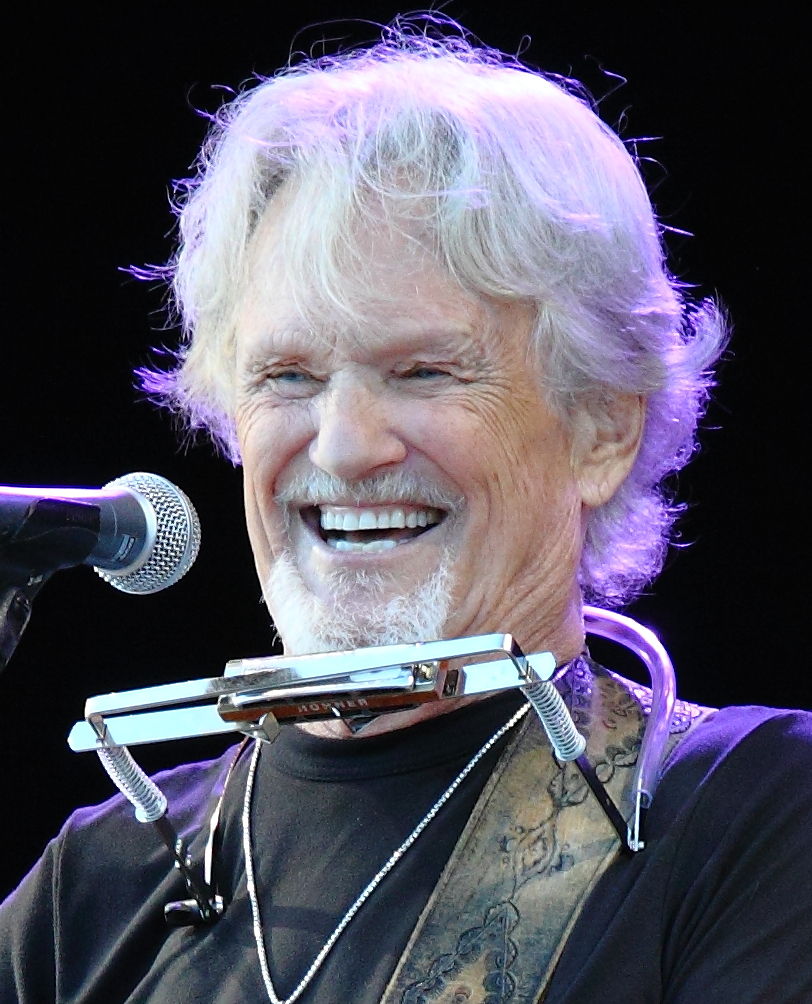
2. **Early Nashville Struggles and the Columbia Records Janitor**:Arriving in Nashville, the heart of country music, Kristofferson faced the harsh realities of breaking into a competitive industry. His initial years were marked by financial hardship and a need to take on “odd jobs” to sustain himself while tirelessly pursuing his songwriting dreams. This period of struggle was crucial, hardening his resolve and grounding his artistic vision in authentic, lived experience.
Perhaps the most famous of these early jobs was his stint as a part-time janitor at Columbia Records’ Music Row studio in 1966. This seemingly menial role placed him at the epicenter of musical history, offering a direct, albeit humble, connection to the giants of the era. It was during this time that he was literally present while Bob Dylan recorded tracks for his seminal “Blonde on Blonde” double album, an experience that must have fueled his own creative ambitions.
This chapter of his life underscores Kristofferson’s unwavering commitment to his craft. Despite his formidable academic background and military accomplishments, he was willing to start at the bottom, sweeping floors and cleaning toilets, all for the chance to share his music. It was a testament to his belief in his own voice and a powerful demonstration of the sacrifices he was prepared to make for his art.
Read more about: Kris Kristofferson’s Enduring Journey: A Deep Dive into the Life and Legacy of a Rugged Star
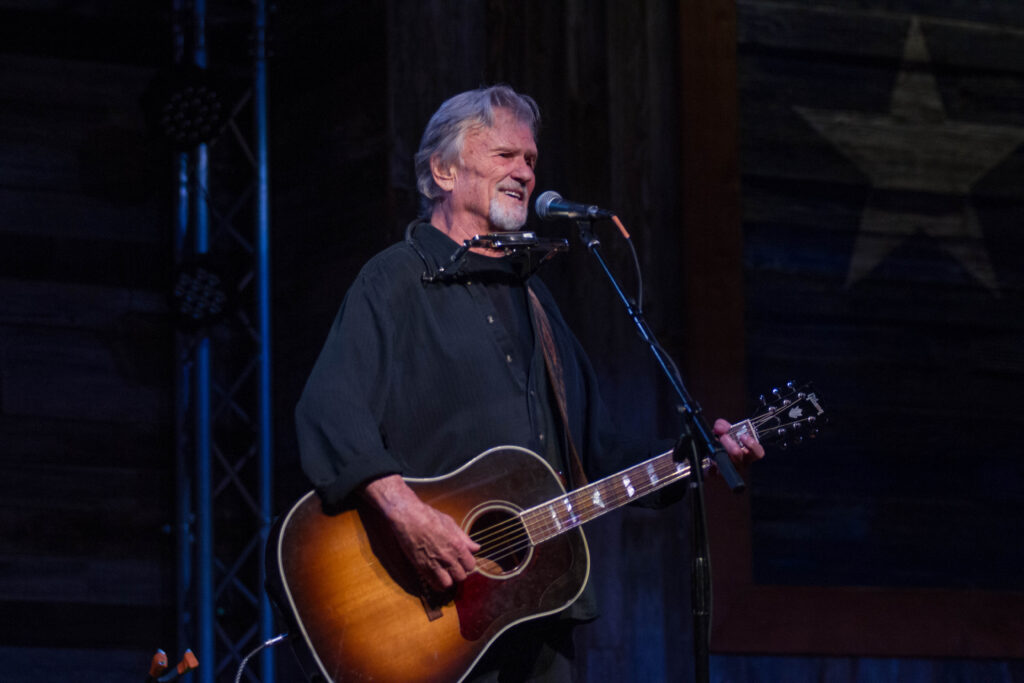
3. **The Breakthrough Songwriter: Crafting “Sunday Mornin’ Comin’ Down”**:Kristofferson’s relentless pursuit of songwriting began to bear fruit with compositions that captured the essence of the human condition. One of his most significant early successes was the profound and poignant “Sunday Mornin’ Comin’ Down,” a song that would not only launch his career but also become a country standard, resonating with generations of listeners.
The legend surrounding how this song reached Johnny Cash, the “Man in Black,” is as iconic as the song itself. Cash liked to tell a dramatic, though “mostly exaggerated story,” of Kristofferson, a former U.S. Army pilot, landing a helicopter on Cash’s lawn, allegedly with a beer in one hand, to personally deliver a tape of the song. While a bold move indeed, Kristofferson himself clarified in interviews that while he did land a helicopter at Cash’s house, Cash wasn’t even home at the time, and the demo tape contained a different song that no one ever actually cut, and he certainly couldn’t fly a helicopter holding a beer.
Regardless of the exact details, the encounter, fueled by Kristofferson’s audacious spirit, proved to be career-defining. Kristofferson recounted in a 2006 interview with The Associated Press that he might not have had a career without Cash. “Shaking his hand when I was still in the Army backstage at the Grand Ole Opry was the moment I’d decided I’d come back,” he said, describing the experience as “electric.” Cash, he noted, “kind of took me under his wing before he cut any of my songs. He cut my first record that was record of the year. He put me on stage the first time,” validating Kristofferson’s talent and setting him on an unstoppable trajectory.
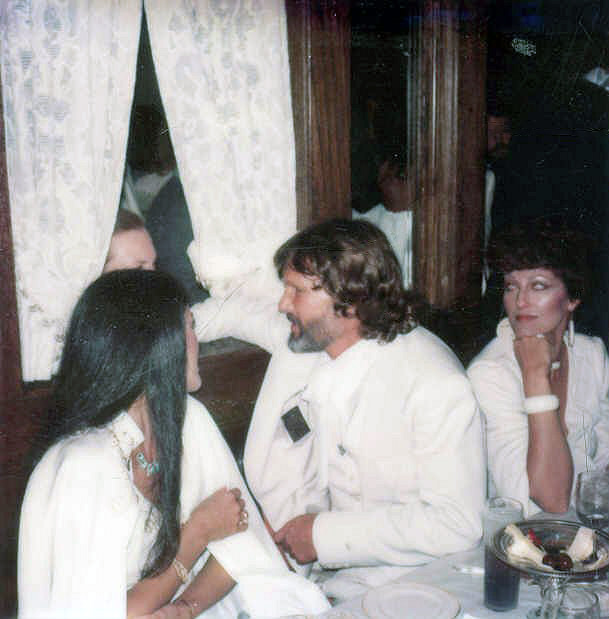
4. **A Pantheon of Hits for Others: “Me and Bobby McGee” and Beyond**:While Kristofferson would eventually achieve fame as a performer, many of his most enduring and beloved songs initially gained widespread recognition through the powerful interpretations of other artists. This unique aspect of his career underscores his remarkable skill as a pure songwriter, capable of crafting narratives and melodies that resonated universally, regardless of who delivered them. His ability to distill complex emotions into accessible, memorable lyrics made his compositions highly sought after.
Perhaps the most famous example is “Me and Bobby McGee,” a song born from a recommendation by Monument Records founder Fred Foster, who had a title in mind: “Me and Bobby McKee,” named after a female secretary. Kristofferson, however, found his creative spark after watching Frederico Fellini’s film “La Strada,” which inspired him to craft the poignant lyrics about a man and woman traveling together on the road. This cinematic influence gave the song a timeless, wandering quality.
The song was immortalized by Janis Joplin, who shared a close relationship with Kristofferson. Joplin made a crucial lyrical change, making Bobby McGee a man, and recorded her definitive version just days before her tragic death in 1970 from a drug overdose. Her raw, soulful rendition became a posthumous No. 1 hit, cementing both her legacy and Kristofferson’s as a songwriter of unparalleled depth.
Beyond “Me and Bobby McGee,” Kristofferson penned a remarkable array of country and rock ‘n’ roll standards that became signature tunes for other legends. Ray Price’s crooning rendition of “For the Good Times” became an instant classic, winning the 1970 ACM Award for Song of the Year. Sami Smith’s version of “Help Me Make It Through the Night” earned similar acclaim. Other notable cuts included Jerry Lee Lewis’ “Once More With Feeling” and Waylon Jennings’ “The Taker.” These compositions showcased his versatility and his uncanny ability to tap into universal themes of love, longing, and freedom, making him one of the most in-demand lyricists in Nashville.
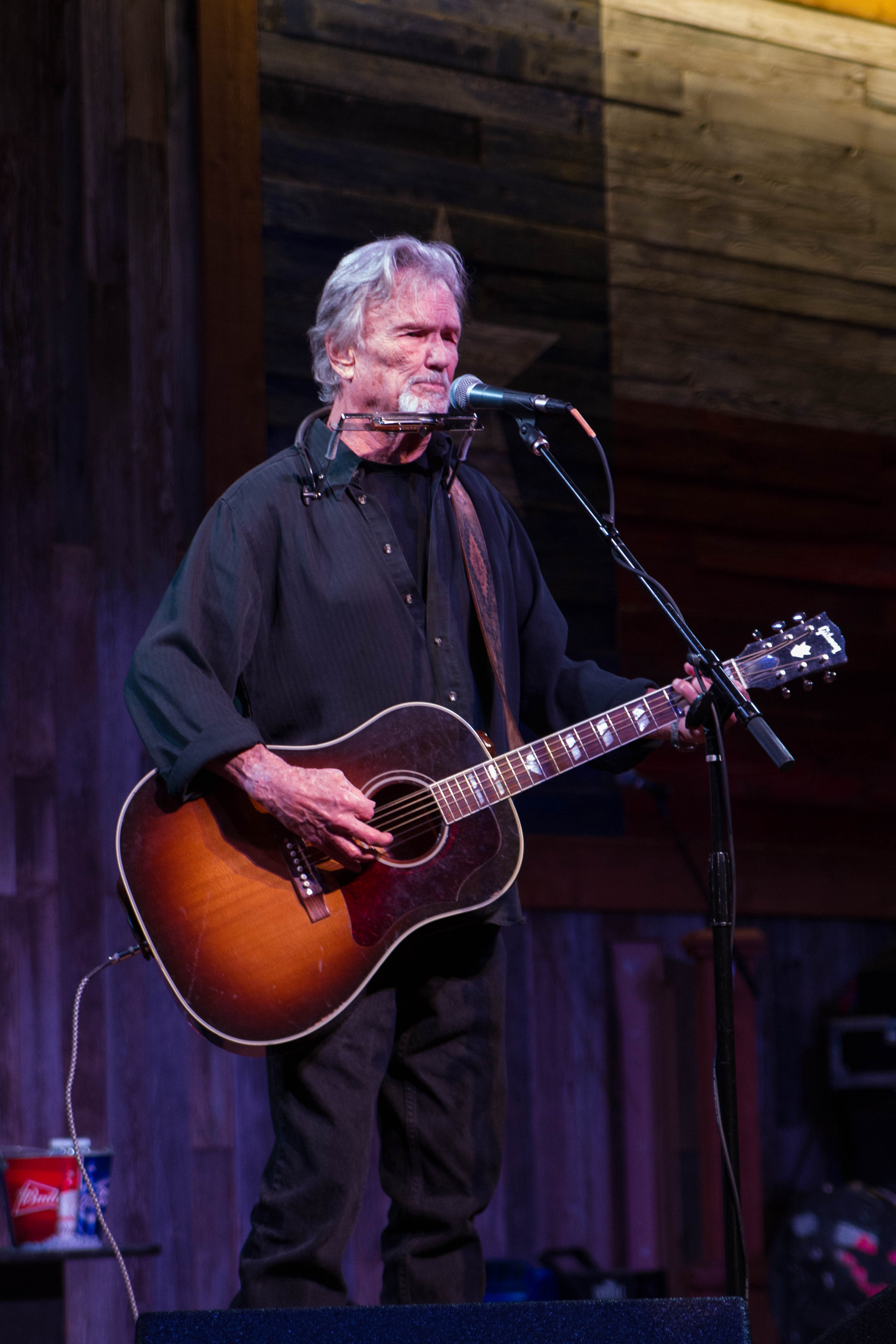
5. **Emergence as a Solo Artist: Finding His Own Voice**:After achieving considerable success as a songwriter for others, Kristofferson eventually stepped into the spotlight to perform his own material, adding a new dimension to his artistic persona. His self-titled debut album, “Kristofferson,” released in 1970, initially saw limited commercial success. However, its fortunes dramatically changed when it was re-issued under the title “Me & Bobby McGhee” the following year, riding the wave of Janis Joplin’s posthumous chart-topping hit. This re-release allowed audiences to connect his name directly with the iconic song he had penned.
His solo career quickly gained momentum, with his second album, “The Silver Tongued Devil and I,” proving to be a success. This album yielded one of his own enduring hits, “Loving Her Was Easier (Than Anything I’ll Ever Do Again),” a song that would become a live staple for his friend and fellow artist, Willie Nelson. These early solo efforts established Kristofferson as not just a gifted writer, but also a compelling vocalist whose gruff, authentic delivery perfectly suited his poignant lyrics.
While his third album, “Border Lord,” experienced a commercial disappointment, Kristofferson rebounded with his fourth album, 1972’s “Jesus Was a Capricorn.” This album included “Why Me,” which went on to become one of his best-known and most beloved songs, further cementing his place as a recording artist in his own right. Other hits he recorded during this period included “Watch Closely Now,” “Desperados Waiting for a Train,” and “A Song I’d Like to Sing,” showcasing his range and consistent output as a performer.
Read more about: JD Souther: The Unforgettable Legacy of the Songwriter Who Defined ’70s Country-Rock and Beyond

6. **The Architect of Outlaw Country: A New Breed of Songwriter**:Kris Kristofferson was a pivotal figure in shaping the “outlaw country” movement, a genre that defied Nashville’s polished conventions and embraced a more raw, authentic, and often rebellious spirit. With his distinctive image and lyrical content, he represented a radical departure from the traditional country artists who preceded him, fundamentally changing what country music could be.
His appearance alone—with long hair and bell-bottomed slacks—was a visual statement that challenged the conservative norms of the country music establishment of the late 1960s and early 1970s. This visual defiance was mirrored in his music, which often featured counterculture themes and intricate folk-inspired lyrics, heavily influenced by the narrative depth of artists like Bob Dylan. He wove together themes of loneliness, tender romance, and existential questioning with a poetic sensibility rarely heard in the genre at the time.
Kristofferson, alongside peers such as Willie Nelson, John Prine, and Tom T. Hall, was part of a “new breed” of country songwriters who pushed boundaries and expanded the thematic scope of the genre. They brought a literary quality and a contemporary edge to country music, making it resonate with a wider, often younger, audience who appreciated its honesty and rebellious spirit. His representative noted that he “changed the language of country music, with extraordinary internal rhymes, Shakespearean iambic pentameter, and socially progressive subject matter that found the personal within the political.”
Willie Nelson, a close friend and collaborator, captured Kristofferson’s unique contribution perfectly, stating at a 2009 BMI award ceremony, “There’s no better songwriter alive than Kris Kristofferson. Everything he writes is a standard and we’re all just going to have to live with that.” This sentiment underscores Kristofferson’s undeniable role in not just writing songs, but in crafting timeless standards that redefined the very essence of country music for generations to come. He was, truly, an architect of its evolution.

7. **The Illustrious Acting Career: From Westerns to Hollywood Stardom**:Kristofferson’s magnetic presence and rugged charm were not confined to the music stage; they found a powerful outlet in Hollywood, launching a side career as an actor in 1971. His foray into film began somewhat serendipitously. He recounted that his first professional gig, opening for Linda Ronstadt at the Troubadour in Los Angeles, garnered a fantastic review from music critic Robert Hilburn. This unexpected attention from the film industry led to a flurry of acting offers, despite his self-admitted lack of acting or performing experience at the time.
His early filmography reflected a particular fondness for Westerns, a genre that perfectly suited his gravelly voice and stoic, attractive leading-man persona. He took on the young title outlaw in director Sam Peckinpah’s 1973 film “Pat Garrett and Billy the Kid” and later reunited with Peckinpah for the 1978 truck-driving drama “Convoy.” Other notable Western roles included playing a corrupt sheriff in John Sayles’ 1996 film “Lone Star.” While he experienced one of Hollywood’s biggest financial flops with the 1980 Western “Heaven’s Gate,” his dedication to the craft remained evident.
Beyond Westerns, Kristofferson carved out an impressive and varied acting resume spanning more than 100 credits. He starred opposite Ellen Burstyn in Martin Scorsese’s 1974 film “Alice Doesn’t Live Here Anymore,” portraying her ruggedly handsome love interest. A pivotal role arrived in 1976 when he starred alongside Barbra Streisand in “A Star Is Born,” a performance that earned him a Golden Globe Award for Best Actor and cemented his status as an A-list Hollywood actor. Streisand herself reminisced about his charm and suitability for the role, noting, “Barefoot and strumming his guitar, he seemed like the perfect choice for a script I was developing.” In a rare turn in the superhero genre, he played the mentor of Wesley Snipes’ vampire hunter in Marvel’s “Blade” in 1998, a role he reprised in its sequels.
Hollywood provided a crucial lifeline for Kristofferson, especially during periods when his music career faced commercial challenges. He candidly acknowledged that acting gigs provided exposure and financial stability, enabling him to continue making music even when he couldn’t afford to tour with a full band. This dual career allowed him to maintain a public profile and a creative output, further solidifying his icon status across both entertainment industries. Barbra Streisand noted his enduring appeal, stating, “It was a joy seeing him receive the recognition and love he so richly deserved.”
Read more about: Pat Crowley: A Legacy Unveiled — Honoring a Veteran Film and TV Actress’s Enduring 60-Year Career
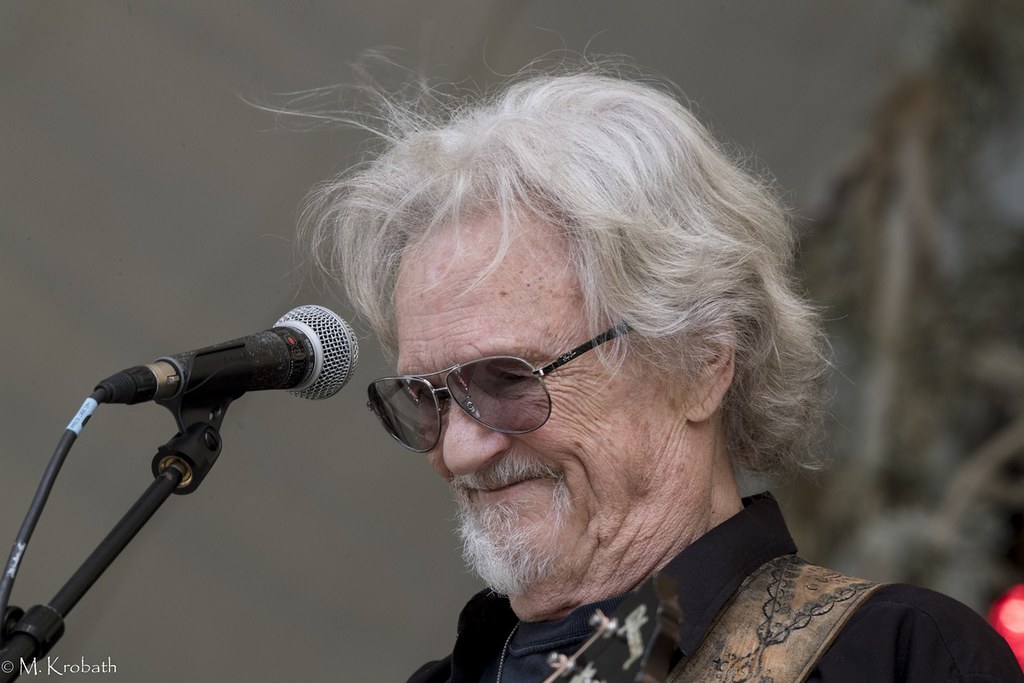
8. **The Highwaymen: Forging a Supergroup Legacy**:One of the most celebrated chapters of Kristofferson’s career was his involvement with The Highwaymen, a country music supergroup formed in the mid-1980s. This legendary quartet united four of country music’s most iconic and influential figures: Kristofferson, Willie Nelson, Johnny Cash, and Waylon Jennings. The formation of this group was a pivotal moment, revolutionizing the outlaw country genre and bringing together a collective of artists who had fundamentally shaped the sound and sensibility of modern country music.
Their collaboration resulted in a successful album and earned them Single of the Year honors at the ACM Awards for the Jimmy Webb-penned song “Highwayman.” The group’s powerful blend of individual artistry and collective charisma resonated deeply with audiences, creating a unique sound that celebrated their shared rebellious spirit and profound storytelling. The Highwaymen released three albums between 1985 and 1995, leaving an indelible mark on country music history.
Kristofferson often reflected on his experience with The Highwaymen with profound respect and humility. He considered himself “different from the other guys in that I came in it as a fan of all of them,” having admired Nelson, Cash, and Jennings since his Army days for their serious approach to music. To be not only recorded by them but to be friends and work side by side was, for him, “just a little unreal,” akin to “seeing your face on Mount Rushmore.” This camaraderie defined a significant period of his life.
However, the dream team was not destined to last forever. Jennings passed away in 2002, followed by Cash a year later, leaving only Nelson and Kristofferson from the original lineup. Kristofferson expressed a wistful sentiment in 2005, wishing he had been “more aware how short of a time it would be” and regretting not cherishing “each moment.” While there was talk of reforming the group with other artists like George Jones or Hank Williams Jr., Kristofferson believed it “wouldn’t have been the same,” acknowledging the irreplaceable bond and unique chemistry of the original four. Willie Nelson, the sole surviving member of the quartet, fondly recalled the Highwaymen period as “the best time of his life.”
Read more about: Kris Kristofferson: A Profound Legacy of Song and Screen, Explored Through a Life Well-Lived

9. **Political Convictions and Lyrical Boldness**:Throughout his career, Kris Kristofferson was never one to shy away from politically charged topics, often infusing his songwriting with socially progressive subject matter that explored the personal within the political. This willingness to engage with challenging themes sometimes came at a commercial cost, particularly in the late 1980s, when his sharp-tongued political lyrics occasionally hurt his popularity in a genre often perceived as more conservative.
His 1989 album, “Third World Warrior,” serves as a prime example of his commitment to his convictions. The album focused acutely on Central America and the profound consequences of United States policy in the region. While critically lauded for its courage and insight, the overtly political nature of the songs was not met with universal enthusiasm from fans and critics, reflecting a segment of the audience unprepared for such direct social commentary from a country artist.
Kristofferson himself addressed the backlash to his political songwriting in a 1995 interview, recalling a woman who complained about a song that began with the provocative line about killing babies in the name of freedom. His response cut to the heart of his artistic mission: “And I said, ‘Well, what made you mad — the fact that I was saying it or the fact that we’re doing it? To me, they were getting mad at me ’cause I was telling them what was going on.” This stance underscored his belief in art as a vehicle for truth, even when uncomfortable.
His background as the son of an Air Force General and his own military service provided a unique lens through which he viewed such issues. He enlisted in the Army in the 1960s, adhering to family expectations and a generational understanding of honor and service. However, his later disillusionment and questioning of actions taken in the nation’s name made his political songwriting particularly potent and, for him, a painful but necessary expression of his conscience. His representative notably stated that Kristofferson’s work found “the personal within the political.”
Read more about: Christian Singer Forrest Frank Loses 30,000 Followers After Kirk Remarks, Reaffirms Faith Stance
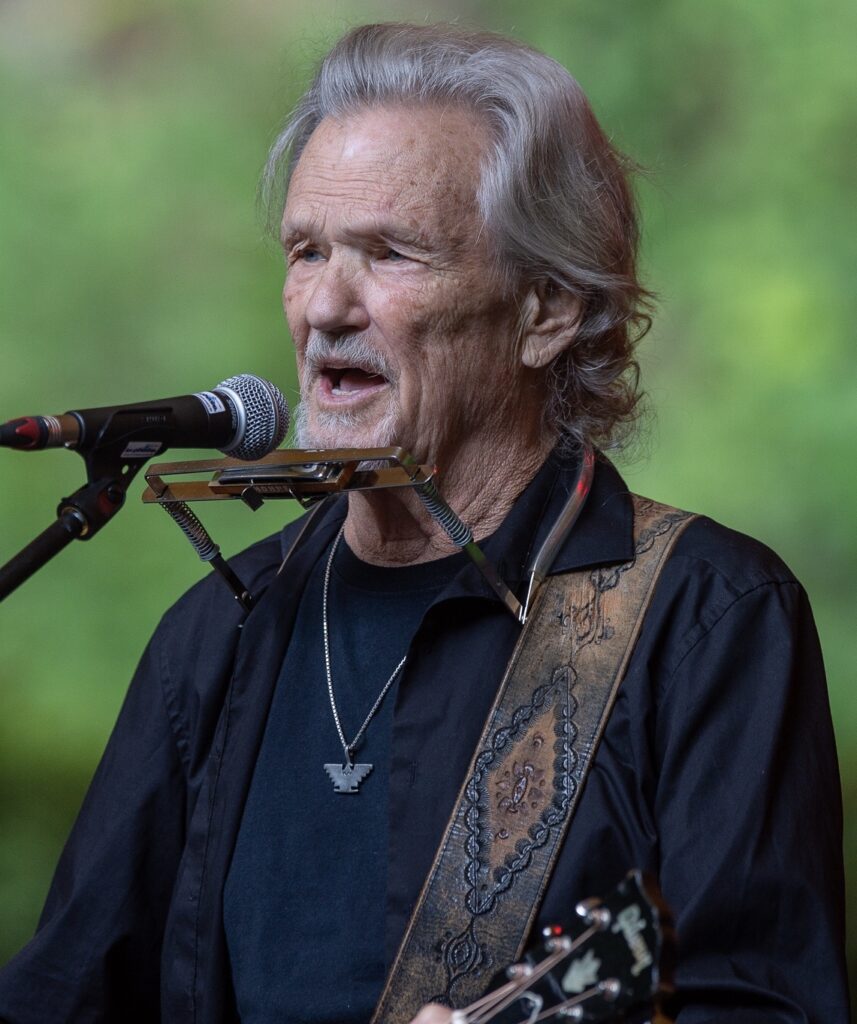
10. **A Complicated Personal Life and Enduring Relationships**:Beyond the public persona of the outlaw musician and Hollywood actor, Kris Kristofferson navigated a personal life marked by both challenges and deep affection. In 1973, he married fellow songwriter Rita Coolidge, and their union blossomed into a successful duet career that earned them two Grammy Awards. Together, they collaborated on music that showcased their combined talents, leaving a notable mark on the music scene. However, their marriage concluded in divorce in 1980, marking a transitional period in his personal journey.
After what was publicly described as decades of “much-publicized alcohol and drugs, fighting and two failed marriages,” Kristofferson found a profound sense of stability and happiness with his third wife, Lisa Meyers. They married in 1983, a partnership that brought a settling influence to his life. This marriage was a pivotal point, allowing him to cultivate a more peaceful and grounded existence, a stark contrast to the tumultuous earlier years that had often made headlines.
Together, Kris and Lisa had five children, adding to his three children from previous marriages. In total, Kristofferson was a father to eight children—Tracy, Kris Jr., Casey, Jesse, Jody, John, Kelly, and Blake—and a grandfather to seven grandchildren. This large and loving family became a central part of his later life, providing a rich tapestry of relationships and experiences that brought him immense joy and contentment. His family spokesperson, Ebie McFarland, emphasized that he died peacefully “surrounded by his family,” a testament to these cherished bonds.
In his later years, Kristofferson often reflected on his life with a deep sense of gratitude. As he approached his 76th birthday, he expressed a surprising inclination towards laughter rather than tears, a sentiment captured in his trilogy of albums starting with “This Old Road.” He aimed for honesty in his songwriting, remarking, “And what I’m finding, to my pleasant surprise at this age, is that I’m more inclined to laughter than tears. I hope I’ll feel this creative and this grateful until they throw dirt over me.” This perspective underscored his profound appreciation for the life he had built.
Read more about: 14 Cinematic Shots Where Dialogue and Action Were Improvised – Pure, Unscripted Magic That Defined Eras

11. **The Farewell to the Stage and Continued Appearances**:In 2021, Kris Kristofferson quietly retired from performing and recording, drawing a graceful curtain on a prolific career that had spanned over five decades. While he stepped back from the regular rigors of touring and studio work, his connection to music and his peers remained strong, leading to occasional, cherished guest appearances on stage. These rare performances offered fans a chance to witness the enduring spirit of the legend.
One of his most recent public appearances took place at Willie Nelson’s 90th birthday celebration at the Hollywood Bowl in Los Angeles in 2023. There, he joined Rosanne Cash, Johnny Cash’s daughter, to sing “Loving Her Was Easier (Than Anything I’ll Ever Do Again).” This poignant duet highlighted the enduring impact of his songwriting and his deep friendships within the country music community. Such moments served as powerful reminders of his lasting influence and the respect he commanded.
Publicly, Kristofferson revealed in 2013 that he was suffering from memory loss, a challenge he faced with characteristic fortitude. Despite this, he continued to engage with his creative passions, appearing at events such as the Country Music Hall of Fame Medallion Ceremony to welcome new inductees like Tanya Tucker and Hank Williams Jr. in 2022 and 2023, respectively. These appearances, though less frequent, demonstrated his unwavering commitment to the music world that he so profoundly shaped.
His final performance is believed to have been at Willie Nelson’s birthday party in May 2023. These later years, marked by both a peaceful retirement and a continued, if reduced, public presence, allowed Kristofferson to reflect on his journey and enjoy time with his family, who were constantly by his side. The family statement confirmed his peaceful passing surrounded by loved ones, underscoring the tranquility of his final years.
Read more about: Audrey Hepburn: Beyond the Icon — A Deep Dive into Her Life, Legacy, and Unforgettable Impact on Film and Humanity
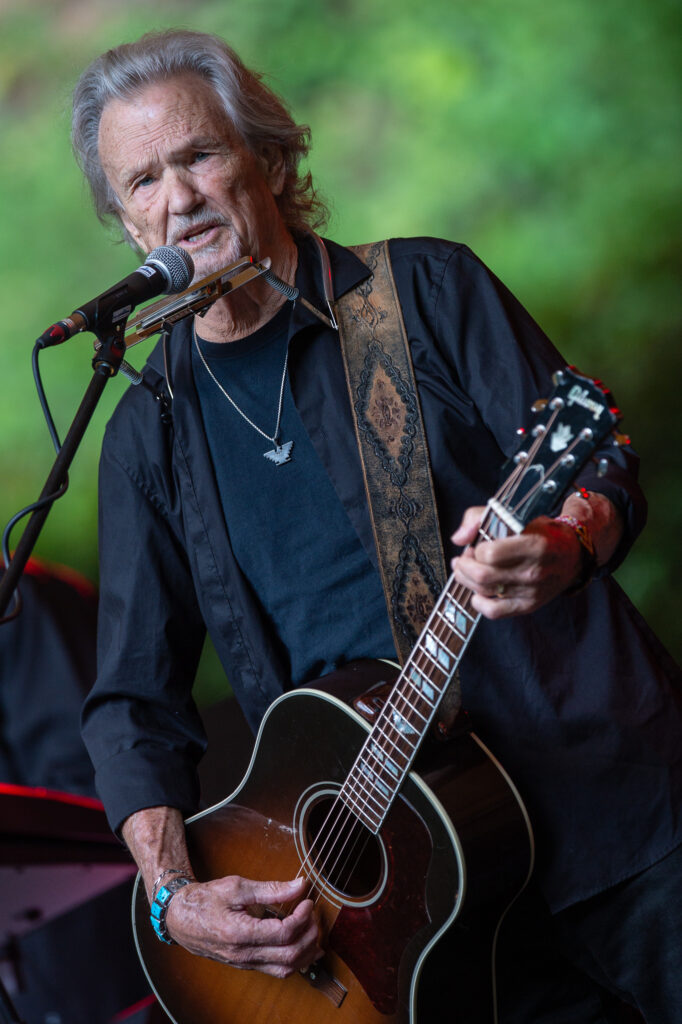
12. **The Indelible Legacy of an American Artistic Icon**:Kris Kristofferson’s passing at 88 marks the end of an era, but his multifaceted legacy as a Rhodes scholar, U.S. Army captain, groundbreaking songwriter, country music superstar, and A-list Hollywood actor will resonate for generations. He was a true renegade, whose life defied easy categorization, blending intellectual depth with raw, heartfelt artistic expression across disciplines. His unique journey from academia and military service to the vibrant worlds of songwriting and acting created a singular voice in American culture, leaving an indelible mark that transcends genre and medium.
His extraordinary contributions were widely recognized throughout his career. Kristofferson was inducted into the Songwriters Hall of Fame in 1985 and the Country Music Hall of Fame in 2004, cementing his place among the giants of music. He received the prestigious BMI Icon Award in 2009, and his career was celebrated at an all-star tribute concert in Nashville in 2016, where a pantheon of country stars performed his timeless songs. Beyond music, his acting prowess earned him a Golden Globe Award for Best Actor for his role in “A Star Is Born,” highlighting his versatile artistic genius.
Kristofferson “changed the language of country music,” as his representative aptly noted, with his “extraordinary internal rhymes, Shakespearean iambic pentameter, and socially progressive subject matter that found the personal within the political.” Willie Nelson, a lifelong friend and collaborator, perhaps encapsulated his unparalleled songwriting best at a 2009 BMI award ceremony: “There’s no better songwriter alive than Kris Kristofferson. Everything he writes is a standard and we’re all just going to have to live with that.” His ability to craft songs that became standards, universally beloved and enduring, speaks to his profound understanding of the human condition.
The outpouring of tributes from fellow artists and fans alike underscored the depth of his impact. John Rich called him “one of the greatest lyricists to ever live, and a true class act,” while Travis Tritt noted him as an inspiration. Leann Rimes simply stated, “An epic human with the biggest heart.” His family’s poignant message – “Thank you for loving him all these many years, and when you see a rainbow, know he’s smiling down at us all” – captures the warmth and affection he inspired.
Read more about: Marilyn Monroe: A Reassessment of a Life Defined by Stardom, Struggle, and Enduring Iconography
Kris Kristofferson was more than a musician or an actor; he was a poetic soul who lived authentically, challenging conventions and enriching the cultural landscape with his honesty, intellect, and profound artistry. His life serves as a powerful testament to the pursuit of one’s true calling, demonstrating how a singular vision, backed by immense talent and courage, can resonate across generations and leave an everlasting legacy. He departed peacefully, but his songs and his spirit will continue to inspire.



